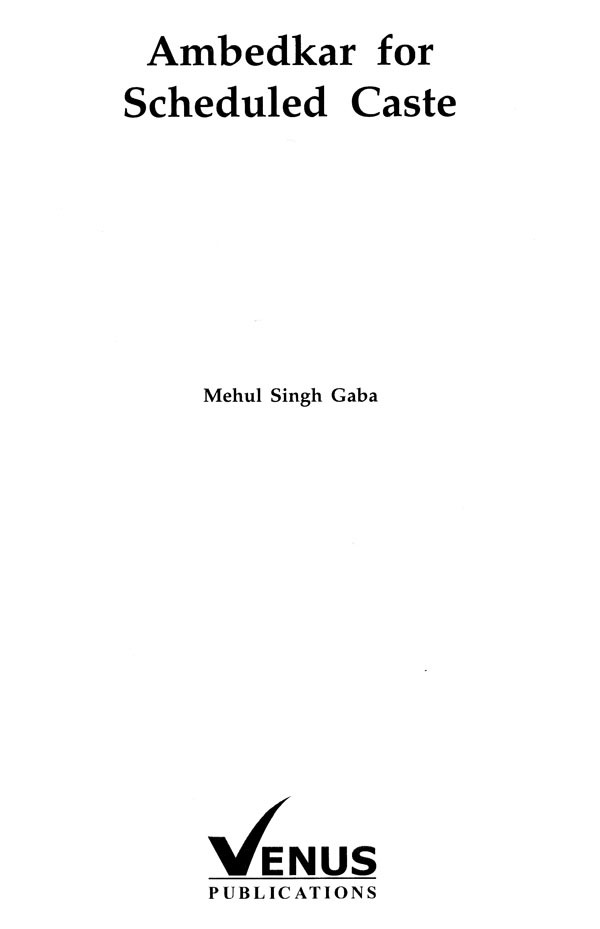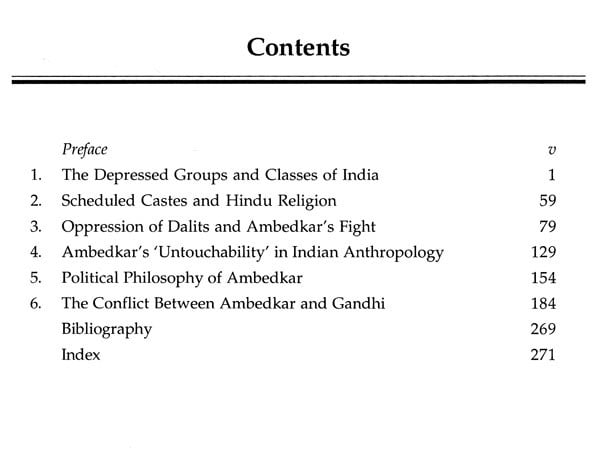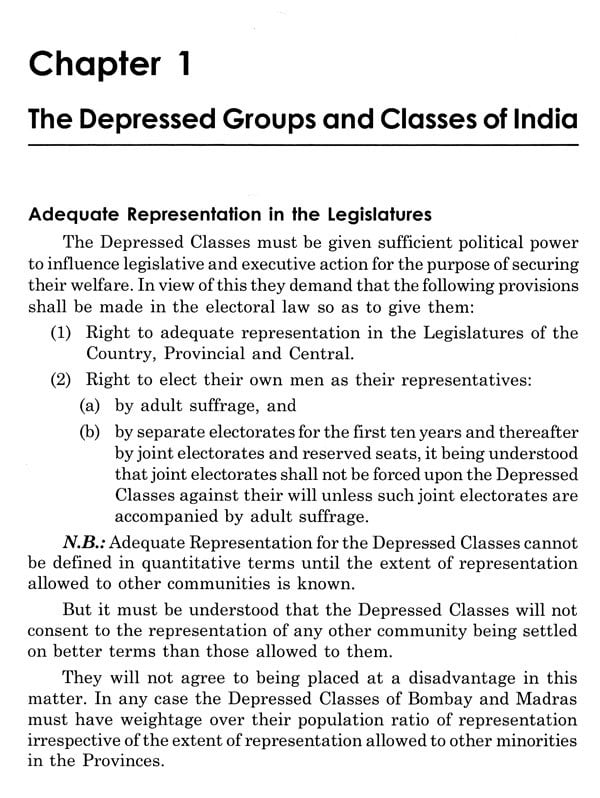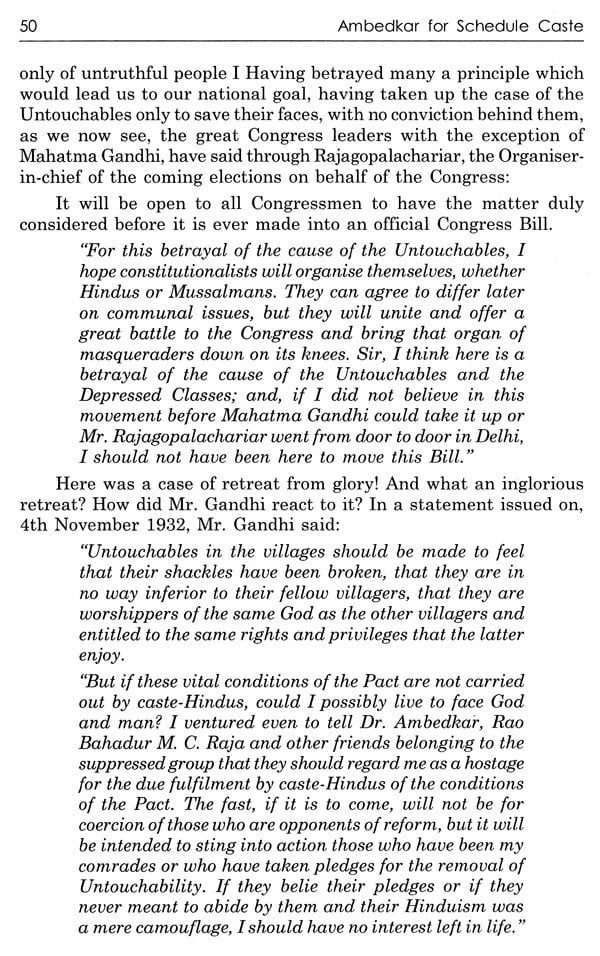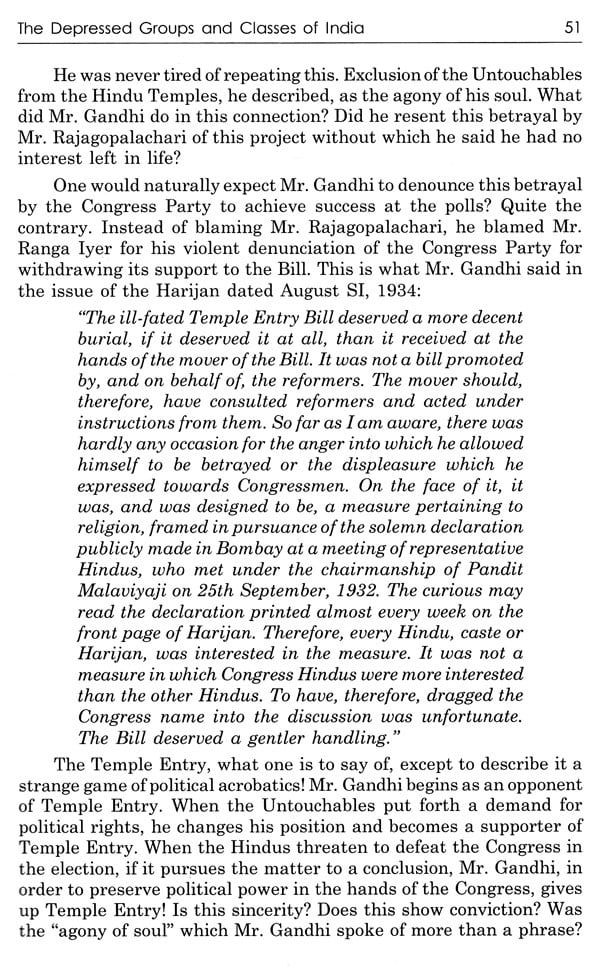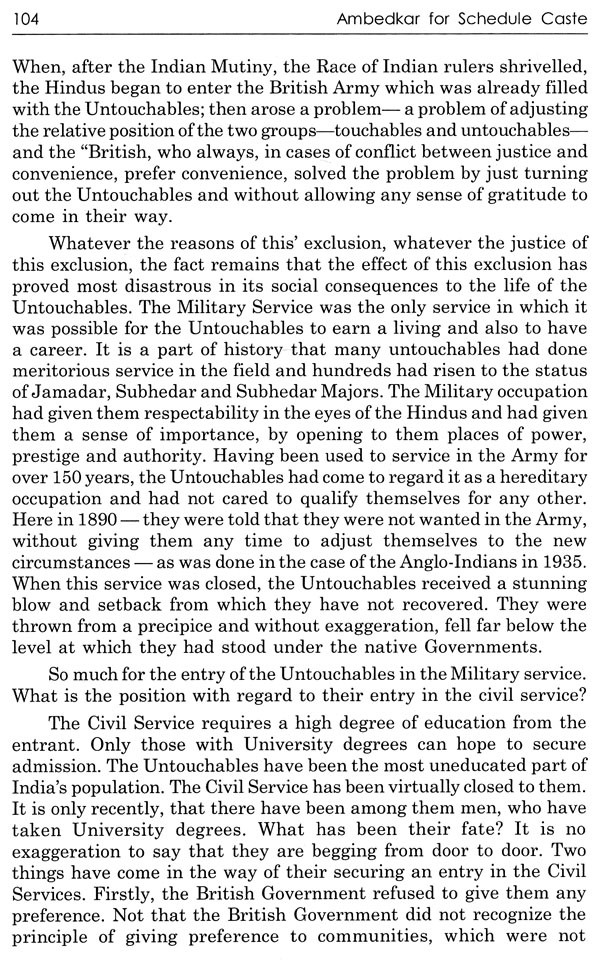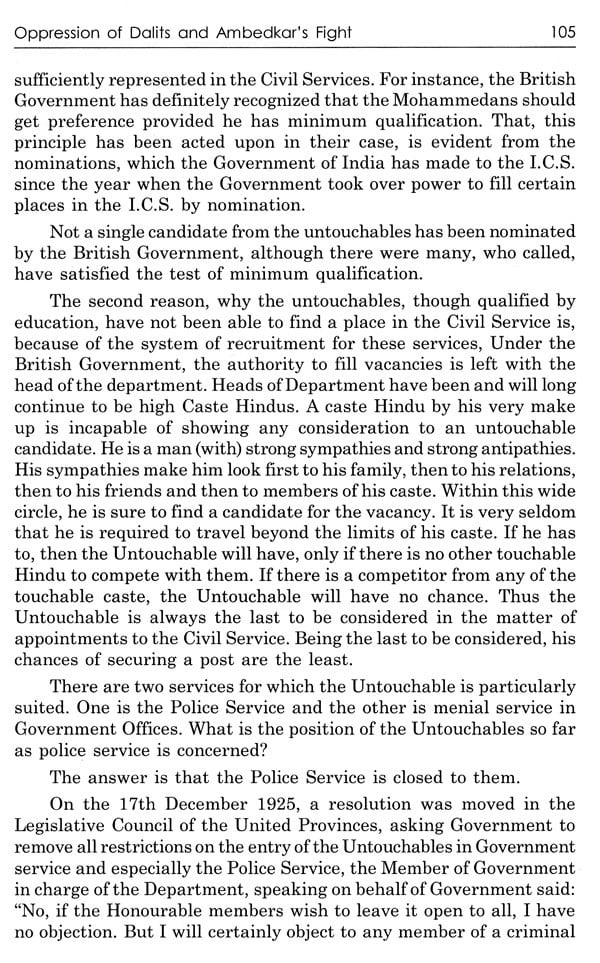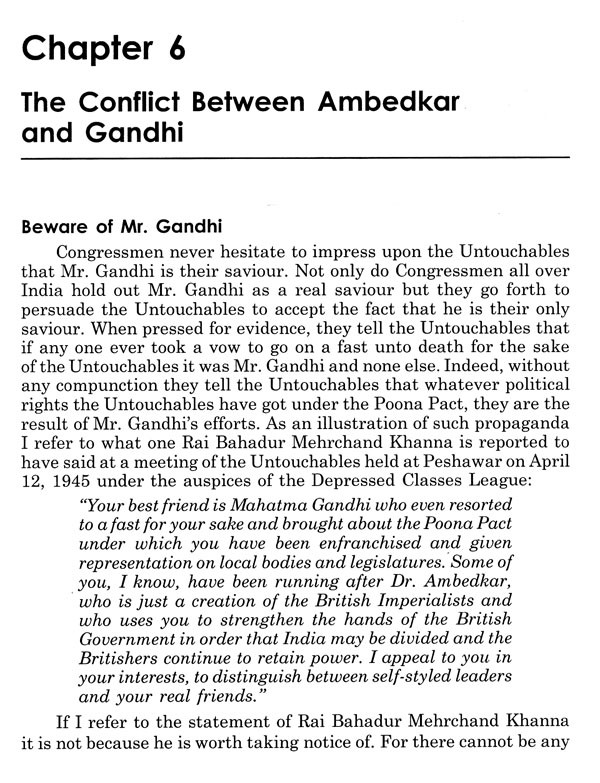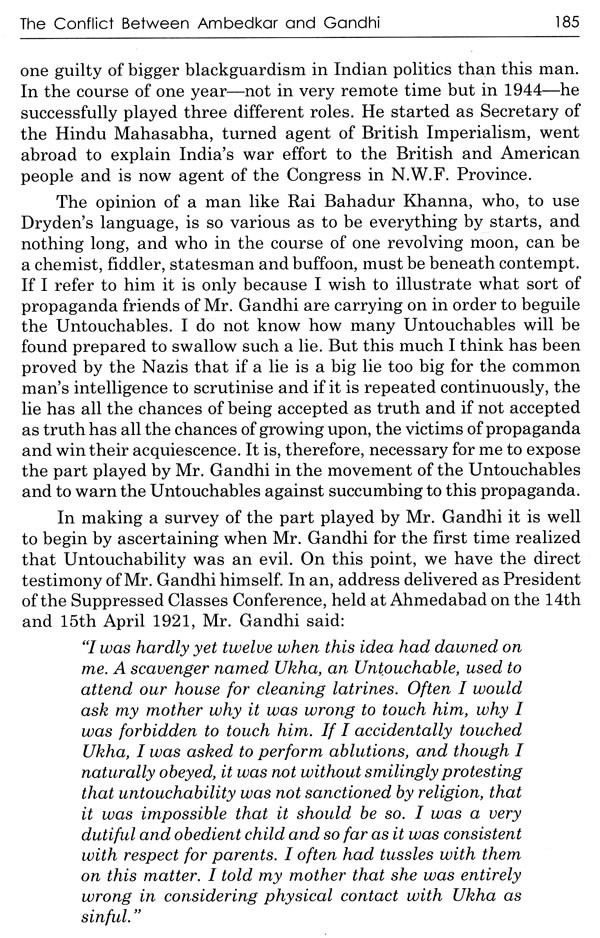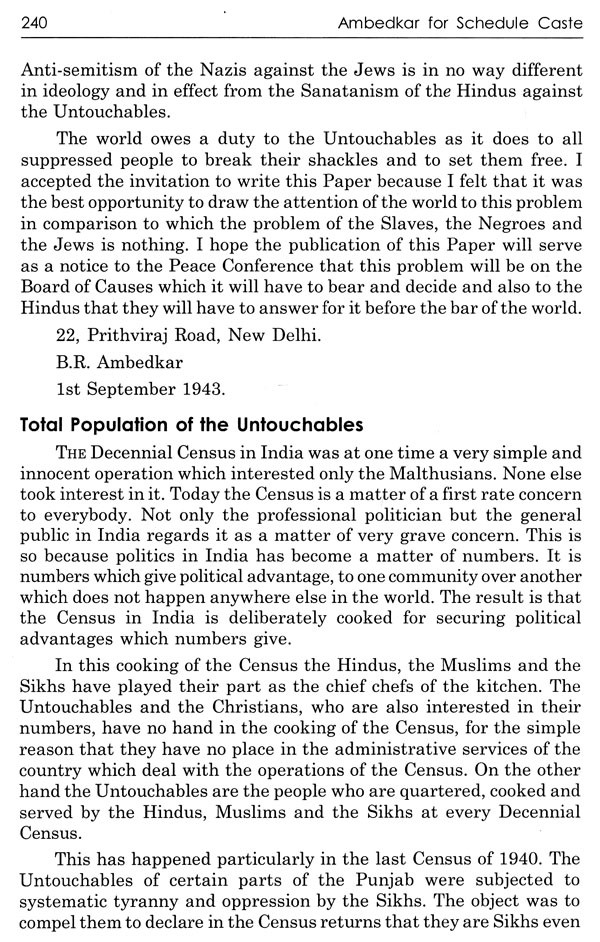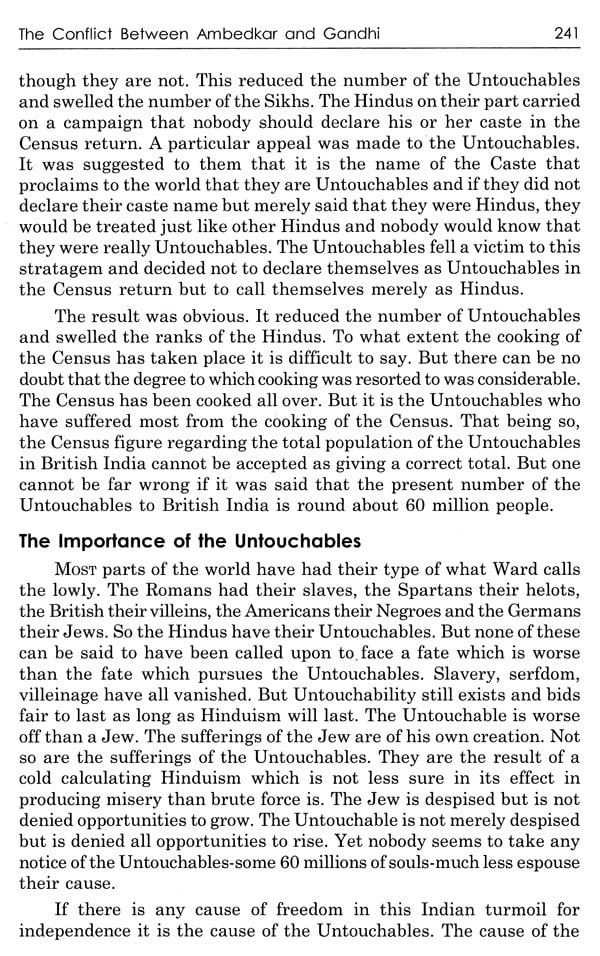
Ambedkar for Scheduled Caste
Book Specification
| Item Code: | UAR778 |
| Author: | Mehul Singh Gaba |
| Publisher: | Venus Publications, Delhi |
| Language: | English |
| Edition: | 2022 |
| ISBN: | 9788195765684 |
| Pages: | 279 |
| Cover: | HARDCOVER |
| Other Details | 9.50 X 6.50 inch |
| Weight | 630 gm |
Book Description
Caste is a system in which determination of position, rights and duties of an individual is done on the basis of the birth of such individual in a particular group. In other words we can say that, the status of an individual is determined by birth. Under caste system an individual is not allowed to change its status. We can say that it is a rigid form of stratification system, which restrict the mobility and distinctness of status. Due to the caste system several evil prevails in the society. Under a caste system and individual is compel to follow the caste occupation. Caste system leads to untouchability. It restricts the growth of brotherhood among people and also it hold off national unity and create obstacles to social progress. Caste system denies equal rights of individual, that why it is considered as undemocratic. With the legacy of Dr. BR Ambedkar, the Indian constitution guaranteed to all citizens the fundamental rights and equal protection before the law. It provides a number of safeguards to Scheduled Castes to ensure their all-round development and protection against all kinds of the discriminations in India. But most of the provisions of the constitution have remained only on paper because their implementation has been faulty, half-hearted and inadequate and inequality, discrimination, exclusion, and stigmatization can jointly contribute to the utter marginalization in India. This valuable book will be an essential reading for students and all interested in Ambedkar and Dalit Studies.
Mehul Singh Gaba is Associate Professor in the Department of Political Science at Bangabasi Morning College, Kolkata, West Bangal. He has attended many national and international seminars. His several research papers have been published in reputed journals.
Caste is a system in which determination of position, rights and duties of an individual is done on the basis of the birth of such individual in a particular group. In other words we can say that, the status of an individual is determined by birth. The Hindu social order, particularly its main pillars, the caste system, and untouchability presents a unique case. As a system of social, economic and religious governance, it is founded not on the principle of the liberty (or freedom), equality and fraternity, the values which formed the basis of universal human rights, but on the principle of inequality in every sphere of life. The social order is based on three interrelated elements, namely, predetermination of social, religious and economic rights of each caste based on birth; the unequal and hierarchical (graded) division of these rights among castes, and provision of strong social, religious and economic ostracism supported by social and religious ideology to maintain the order). Among the Backward Castes, Scheduled Castes are socially, economically. politically, religiously, and culturally oppressed. In the past, many Scheduled Castes embraced Christianity during the British rule in India, these converts were given. free food, clothes, and education by the missionaries. Many of them got good educations and jobs. Some made an attempt, in the 19th century, to disassociate themselves from the traditional callings of the community. They began to imitate the dress and rituals of the Upper Castes in order to avoid ill-treatment, Scheduled Castes have often preferred to change their religion.
Under caste system an individual is not allowed to change its status. We can say that it is a rigid form of stratification system, which restrict the mobility and distinctness of status. Due to the caste system several evil prevails in the society. Under a caste system and individual is compel to follow the caste occupation. It restricts the growth of brotherhood among people and also it holds off national unity and creates obstacles to social progress. Caste system denies equal rights of individual, that why it is considered as undemocratic. For eradicating the problems of caste system many steps were taken by various leaders such as Mahatma Gandhi, Jyotiba Phule and the most significant role was played by Dr. BR Ambedkar.
**Contents and Sample Pages**
